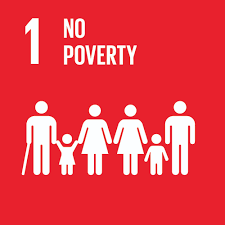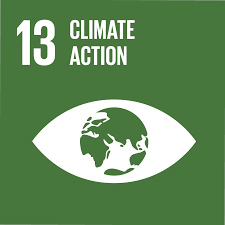Are We Doing Enough to Battle Climate Change?
- Nandita

- Sep 1, 2020
- 4 min read
This article is focused on the following Sustainable Development Goals:
1.1: By 2030, eradicate extreme poverty for all people everywhere, currently measured as people living on less than $1.25 a day
1.5: By 2030, build the resilience of the poor and those in vulnerable situations and reduce their exposure and vulnerability to climate-related extreme events and other economic, social and environmental shocks and disasters
13.2: Integrate climate change measures into national policies, strategies, and planning
13.3: Improve education, awareness-raising and human and institutional capacity on climate change mitigation, adaptation, impact reduction, and early warning
“We have a single mission: to protect and hand on the planet to the next generation.” - Francois Hollande
Wildfires in California and Australia rage more than ever this year -- burning millions of acres, killing thousands of animals, and clogging the air we breathe. Scorching summers and lack of rain in India dry out the water supplies. An increase of cyclones has left homes in ruins within Zimbabwe, Mozambique, and Malawi. Droughts, floods, and unusually dry seasons -- the list goes on forever. All of these disasters have something in common; they are effects of climate change and have a great impact on people in poverty. The large population of people in poverty is often the least responsible for the rising climate crisis but is affected more than any other group. Tackling this issue has become even more important leading into the future, and it’s time for us to take action.
What does this mean for the poor?
According to the United Nations Environment Programme, "adapting to climate change and coping with damages will cost developing countries $140-300 billion per year by 2030" (UNEP). This amount will take a huge toll on countries with higher poverty that are affected disproportionately. At this rate, governments are ill-equipped to help such people improve their situation in time. Whether it is an issue of affordability or acceptance, people in extreme poverty are presented with a greater health risk, considering they have little to no access to proper healthcare. Living in areas that are not well-maintained and having to find their own resources makes them more vulnerable to local diseases and difficulties like famine. Climate change is escalating the severity and number of natural disasters that are occurring at the moment. Destroyed homes, scarcity of crops, resources, and lost belongings are all effects of the calamity.

Around 8.6% of the world is living in extreme poverty (living on less than a couple of dollars a day). That is 736 million people, and 75% of them rely on owning land for agriculture (Mercy Corps). Aside from the people who still work jobs, 17.2 million people are "climate refugees" who can't call any place home due to such issues. "More than 570 coastal cities could be affected by sea-level rise by 2050. In that same period, as many as 1 billion people could be displaced by environmental hazards — primarily sea level rise and natural disasters" (Global Citizen). People relocate more often than before; they have to migrate, uncertain of what living conditions they may have to face. This pushes even more people into poverty from not having anything to sustain their lifestyle.
Two UN Sustainable Development Goals that pertain to this issue are #1 and #13. By prioritizing the health and safety of people in poverty, we are empowering people with smaller jobs, which allows more room for growth in the country and makes sure everyone is given opportunities. Lastly, educating all people will propel us towards mitigating and adapting to the situation. This could involve stricter laws to ensure everyone is consistently trying to change their patterns.
Four actions that individuals can take to actively fight climate change:
Change food patterns: Eat local, reduce packaged food and meat, and only consume what you need. This will cut down the energy and non-recyclables that are wasted.
Save water: Excess exhaustion of water can also contribute to carbon pollution and energy consumption. Take shorter showers and minimize the amount of water left running while doing something else.
Conserve energy: Non-renewable resources release more carbon emissions when generated and will eventually run out. Make it a point to save energy in your own home: turn off or unplug lights/appliances when not in use, invest in more sustainable sources of energy (i.e. solar panels), and use more eco-friendly modes of transport (carpooling, walking/biking, public transport, etc.)
Reduce, reuse, recycle - in that order: Go green! Minimize where you can, try to recycle and upcycle, and find alternative uses for common things. Most importantly, avoid single-use plastics whenever possible.
Help make a difference to people in poverty in these kinds of times:
1. Raise awareness to your friends, families, or authorities. You can share on social media, hold conversations, and sign relevant petitions.
2. Donate to causes using fundraisers or what you have. Donate to causes that give resources, facilities, and access to people in poverty.
Targeting climate action is a necessity and it is crucial we take action early in order to combat the issues discussed. Every one of us has a role to play in this process, and remember, change starts with you.
"Each one of us can make a difference. Together we make a change." - Barbara Mikulski
Work Cited
“5 Natural Disasters That Beg for Climate Action.” Oxfam International, 7 Apr. 2020, www.oxfam.org/en/5-natural-disasters-beg-climate-action.
Denchak, Melissa. “How You Can Stop Global Warming.” NRDC, 17 July 2017, www.nrdc.org/stories/how-you-can-stop-global-warming.
“The Effects of Climate Change.” NASA, NASA, 21 Aug. 2020, climate.nasa.gov/effects/.
“The Facts: How Climate Change Affects People Living in Poverty.” Mercy Corps, 5 June 2020, www.mercycorps.org/blog/climate-change-poverty.
“Let's Talk About Climate Migrants, Not Climate Refugees – United Nations Sustainable Development.” United Nations, United Nations, www.un.org/sustainabledevelopment/blog/2019/06/lets-talk-about-climate-migrants-not-climate-refugees/.
McCarthy, Joe. “Why Climate Change and Poverty Are Inextricably Linked.” Global Citizen, Global Citizen, 19 Feb. 2020, www.globalcitizen.org/en/content/climate-change-is-connected-to-poverty/.
Ruff, Jessinia. “5 Ways Climate Change Affects People Living in Poverty.” One Day's Wages, 20 July 2020, www.onedayswages.org/2017/06/09/5-ways-climate-change-affects-poverty/.
“What Are the Long-Term Effects of Climate Change?” United States Geological Survey, www.usgs.gov/faqs/what-are-long-term-effects-climate-change-1?qt-news_science_products=0.





Comments